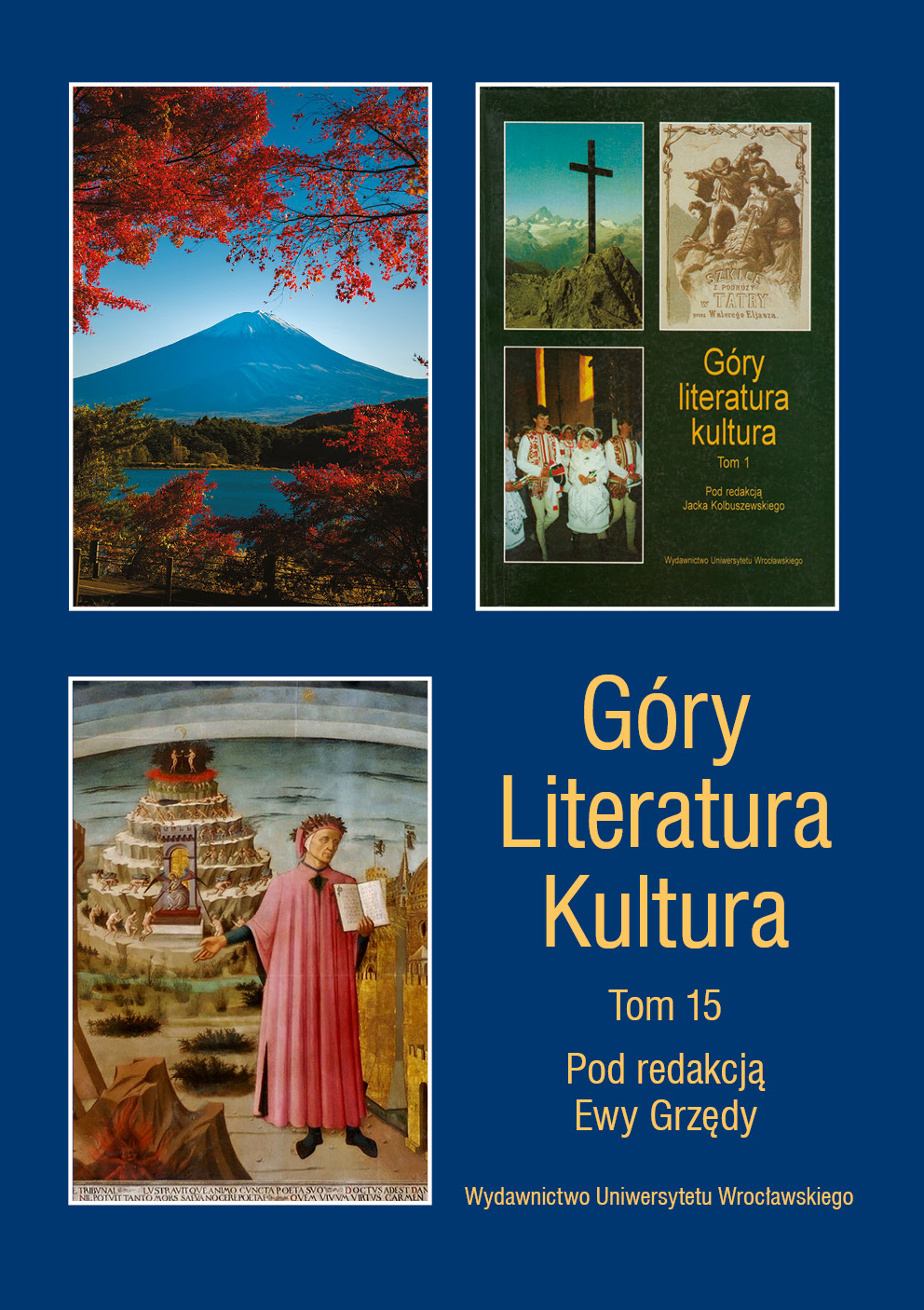„Za czarnych skał krawędzie…”. Góry zawłaszczone przez dekadentyzm w wybranych dziewiętnastowiecznych impresjach literacko-muzycznych
Za czarnych skał krawędzie...”: The mountains appropriated by decadentism in selected nineteenth-century literary and musical impressions
Author(s): Małgorzata Łoboz, Marian UrselSubject(s): Language and Literature Studies, Fine Arts / Performing Arts, Music, Sociology of Art, Sociology of Literature
Published by: Wydawnictwo Uniwersytetu Wrocławskiego
Keywords: W Szwajcarii by Juliusz Słowacki; Young Poland and the Tatras; songs by Mieczysław Karłowicz
Summary/Abstract: The article contains an analysis and interpretation of the significance of the mountains in artistic battles with decadent moods. The man that should be regarded as a precursor of such moods is Juliusz Słowacki. He is the author of the well-known poem W Szwajcarii (In Switzerland, 1839), from which comes the passage included in the title of the article: “Za czarnych skał krawędzie” (Behind the edges of black rocks), where the lyrical protagonist is heading — seeking self-annihilation — trying to find some relief in his suffering. This is the context in which Słowacki’s passage was interpreted by Mieczysław Karłowicz — a representative of the Young Poland generation in music, one of the best known Polish composers, a photographer and mountaineer, who died in the Tatras in an avalanche in 1909. In addition to Słowacki’s piece, the authors of the article analyse also other songs by Karłowicz (which are not highly valued by musicologists), composed to words by well-known nineteenth-century Polish poets, mainly Kazimierz Przerwa-Tetmajer, a leading Polish exponent of decadentism in poetry. Karłowicz represented a neo-romantic version of modernism in music, which is why his oeuvre contains romantic analogies (emotionalism, mysticism, individualism, expression of the form), and his undoubtedly introverted and individualistic personality isolated him from generational associations already during his studies in Berlin. Nevertheless, he did identify with the Young Poland generation through a desire to achieve depression and deprivation defeating nirvana, to overcome death through the belief in the liberating power of nature. The mood of these works is marked by recurring (typically decadent) pessimism — a dominant feature of Karłowicz’s music. The authors conclude by observing that in the views of Polish modernists the mountains were a symbol of eternity and power of nature, a symbol juxtaposed with the fragility of human existence, an oasis of silence, peace and solitude, and thus human freedom. The appropriation of the mountains was tantamount to believing that pessimistic moods made it possible to achieve considerable psychological maturity.
Journal: Góry-Literatura-Kultura
- Issue Year: 15/2021
- Issue No: 1
- Page Range: 329-337
- Page Count: 9
- Language: Polish

